
Why healing trauma benefits our dogs behaviorally.
Having a trauma-informed and *holistic* (meaning: we pay attention to ALL contributing ingredients) approach to behavior: behavioral training, conditioning, modification, and rehabilitation in working with dogs is important. Why? Because *both* ends of the leash are in constant conversation with each other. And both ends of the leash are usually responding, sharing, and exchanging from the residue trauma has left behind (aka skewed interpretations, perceptions, and filters).
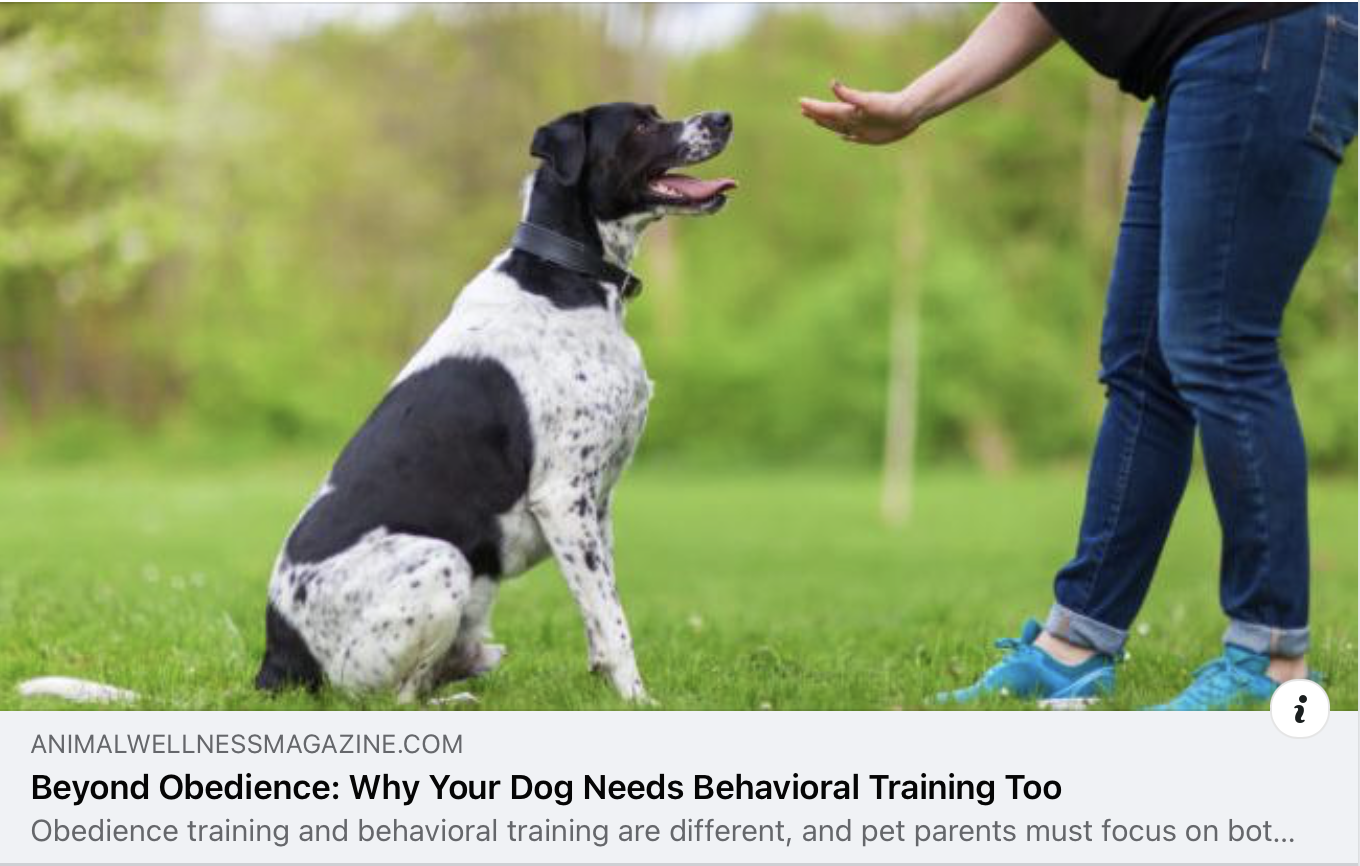
Beyond Obedience: Why Your Dog Needs Behavioral Training, Too
Obedience training and behavioral training are distinct types of teaching, and pet parents who want well-rounded, well-behaved dogs that are happy, calm, and relaxed must focus on both.
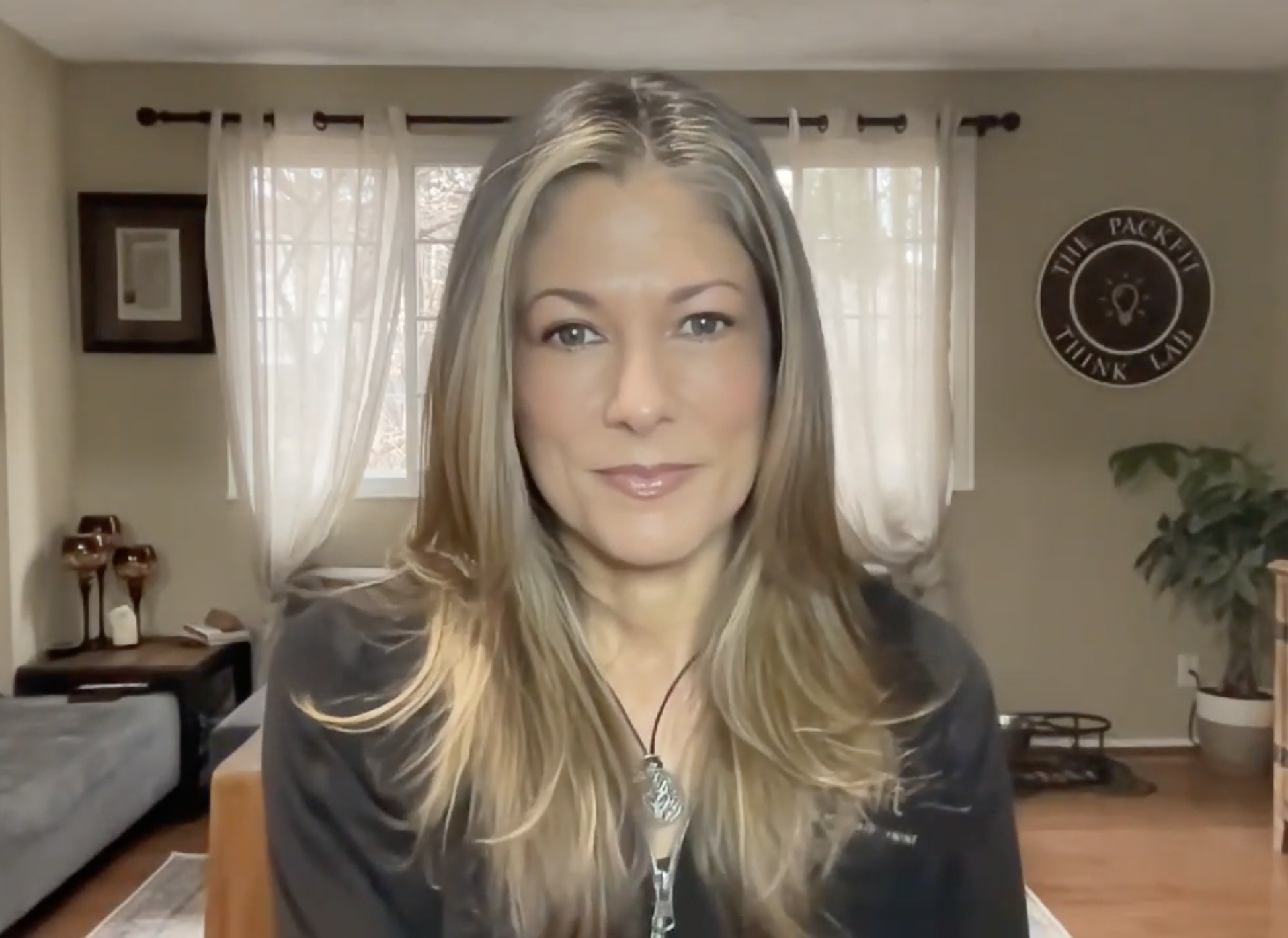
Unknowingly conditioning behaviors.
More often than not, we’re conditioning the behaviors we’re struggling with unknowingly.
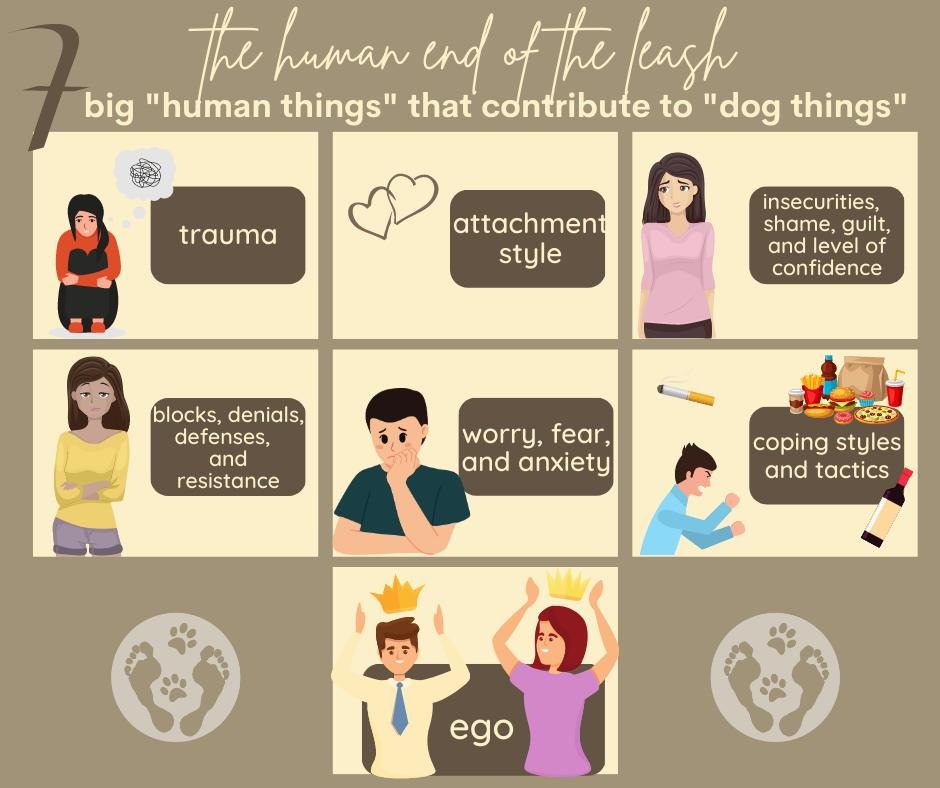
The 7th Big Human Thing that Contributes to the Big Dog Things
The 7 Big Human Things that Contribute to the Big Dog Things

“Training the Whole Dog”
“Speaking to the whole picture, the whole scenario, and the whole dog is how we're able to get the results we get when it comes to *behavior*. Shining a spotlight on all of the contributing ingredients that contribute to, influence, impact... even birth behavior.”
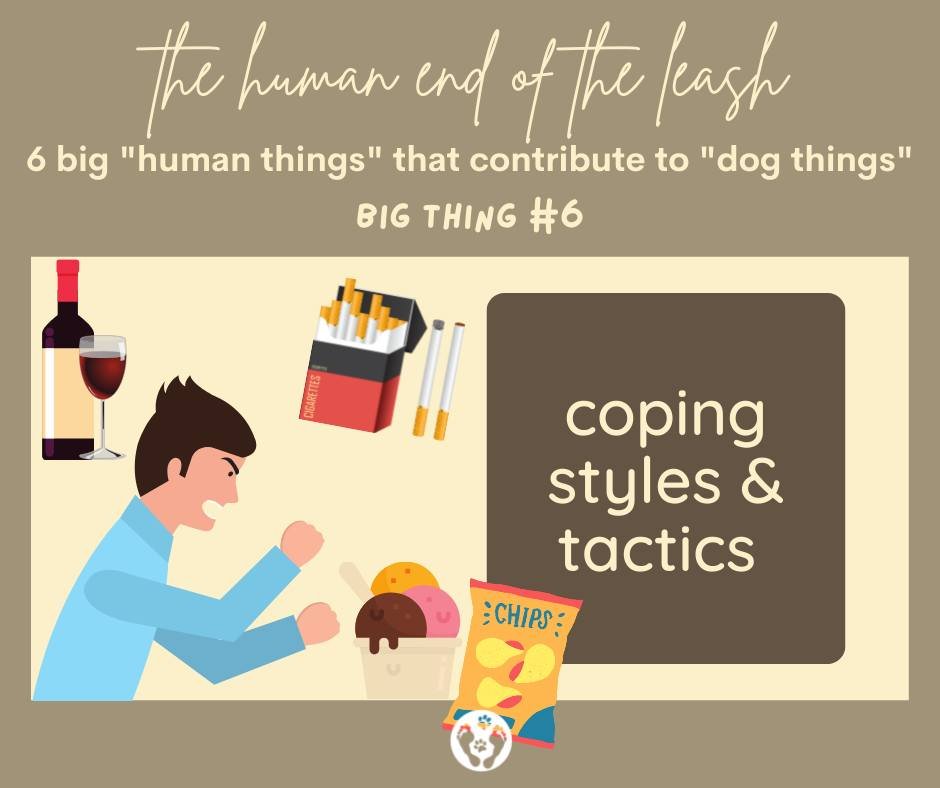
The 6th Big Human Thing that contributes to the Big Dog Things
How we cope with all of this and the tactics we've developed to do so will also show up through dog training.

The 5th Big Human Thing that Contributes to the Big Dog Things
Worry, fear, and anxiety: the 3 Stooges; and how and why this impacts our relationship with our dogs.

#4 of the 6 Big Human Things that Contribute to the Big Dog Things.
Blocks, denials, defenses, and resistance.
One or more of these 4 often show up in behavioral training, and there are several reasons why.

#3 Big Human Thing that Contributes to the Big Dog Things
In our ongoing series of moving through the "7 Big Human Things that Contribute to Dog Things", here is Big Thing #3: Insecurities, Shame, Guilt, and Level of Confidence.

Big Human Thing #2: Attachment Style.
Human attachment style and how it impacts the relationship with our dogs.
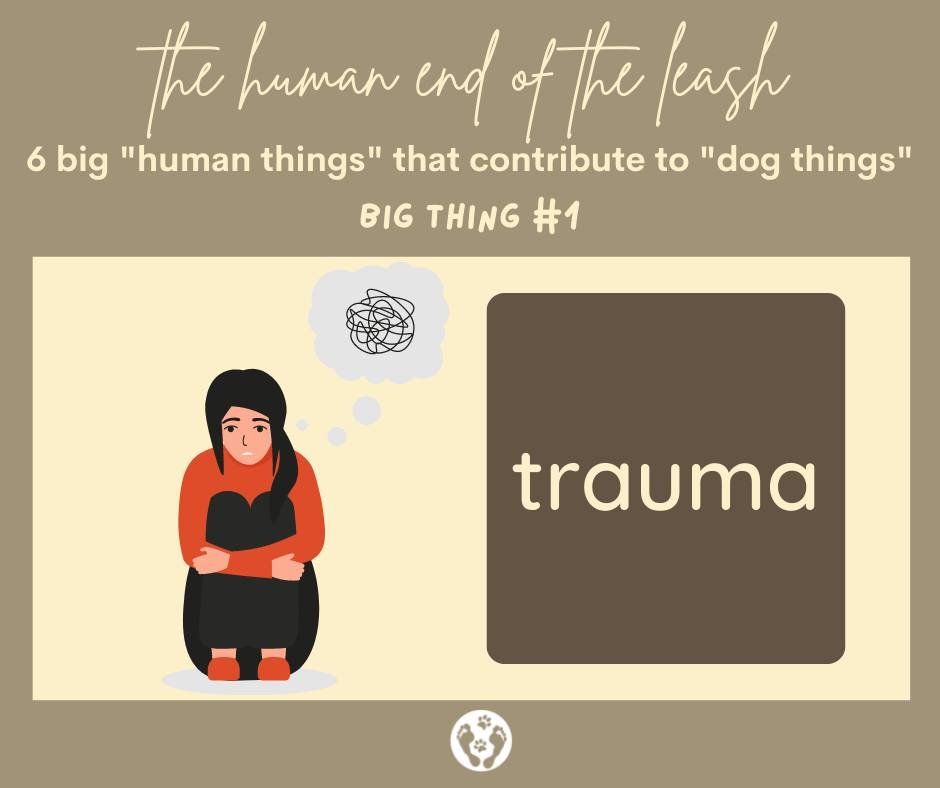

The 7 Big Human Things that Contribute to the Big Dog Things
What started out as “6” became the 7 Big Human Things that Contribute to the Big Dog Things. Who we are, what we do, what we don’t do, how we feel… it all matters.


One of *the* most important behavioral influencers.
Of all of the behavioral influencers we have as social animals, the feeling of *safety* is the most important.


Understanding the Excitement Spectrum
Much like a wagging tail doesn't always mean a "friendly" dog, an overly aroused, overly excited, super juiced and jacked up dog doesn't always mean a "happy" dog.
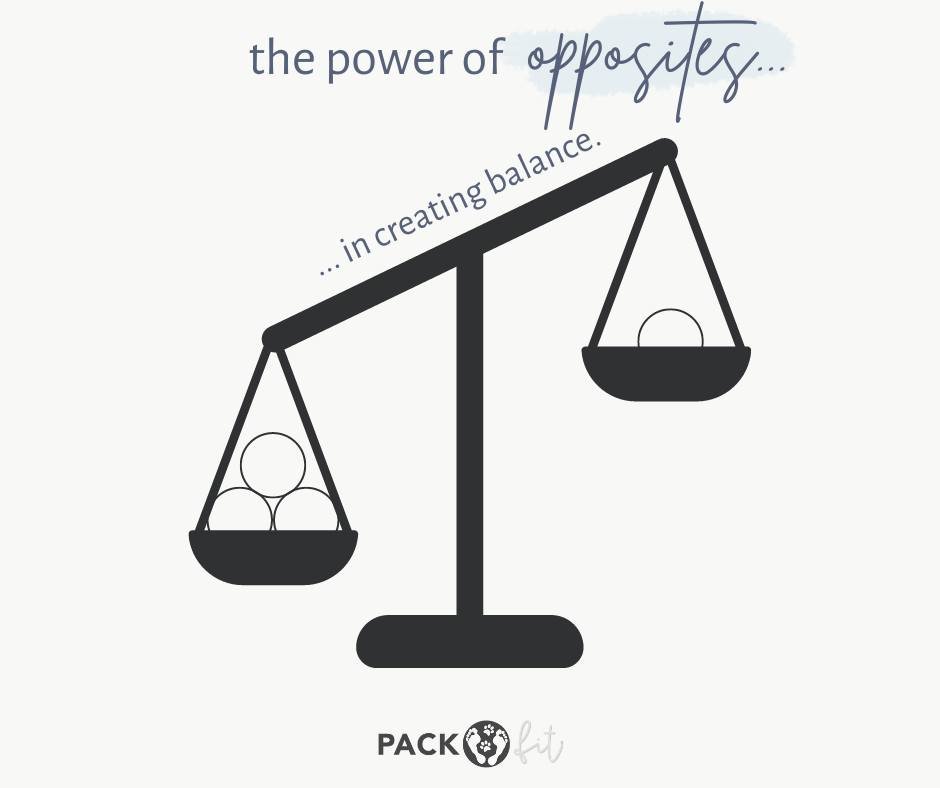
The Power of Opposites
Whenever we have excess or lack, it creates an imbalance.
Understanding the concept of “countering” in dog training is important, and here’s why.

Intuition and Instinct in Dog Training
Intuition: a deep knowing or feeling not based on "logic" or "proof", and transcends "conscious reasoning".
Instinct: an innate, natural genius or inherent ability to respond in a specific way without logic or complex reasoning.
The difference between the two is feeling and response. Feeling and knowing, and acting based on that feeling and knowing without question.

Stimulation vs. Engagement
I conducted an IBAC with a family the other day that inspired this "aha" moment; and the longer I do this work, the more I see this in play: over- and inappropriate use of "stimulation" vs. under-use of engagement.

Dog training is not about “fixing” your dog.
A phenomenon that's often astounded me is folks waiting until major problems arise before "getting dog training". And, when they do, it's often coupled with the mindsets that : it's the dog with the problem, it's the dog who needs "fixing", and it's only the dog who needs "training".

